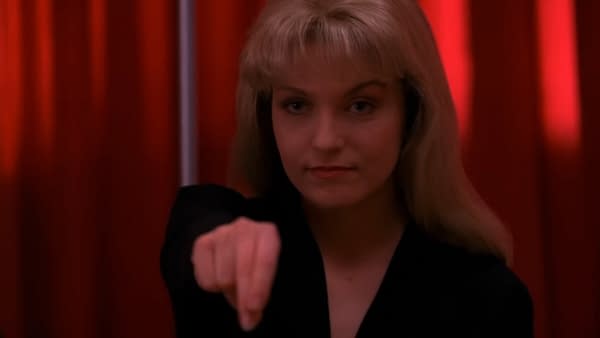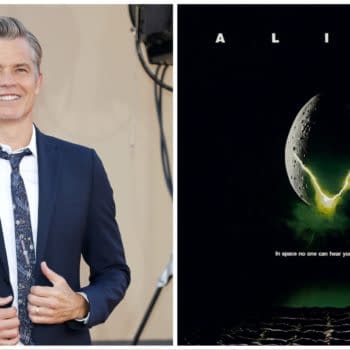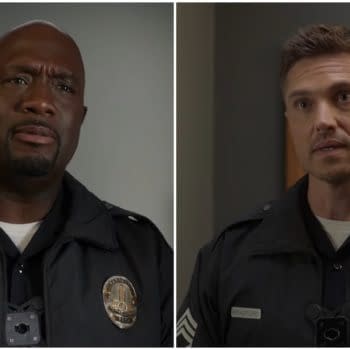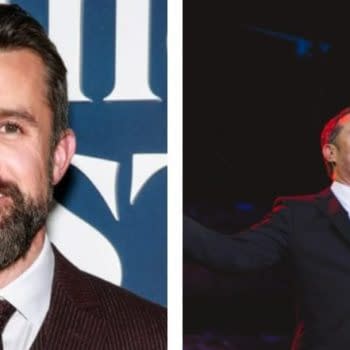Posted in: ABC, Showtime, TV | Tagged: ABC, david lynch, Laura Palmer, mark frost, showtime, twin peaks
Twin Peaks Season 2 Revealed Laura Palmer's Killer Because of Network
Twin Peaks co-creator Mark Frost discusses the network pressuring them to reveal Laura Palmer's killer sooner than they had planned.
On April 8, 1990, the wrapped-in-plastic body of homecoming queen Laura Palmer (Sheryl Lee) was found – bringing FBI Special Agent Dale Cooper (Kyle MacLachlan) to the town of Twin Peaks to assist Sheriff Harry S. Truman (Michael Ontkean) in finding a killer before they strike again. Based on that overview alone, you would think that S01E01: "Pilot"/"Northwest Passage" was nothing more than an interesting-sounding but otherwise standard mystery procedural. But David Lynch & Mark Frost's Twin Peaks would prove to be so much more than that, mere minutes after the series first hit our screens. The series would run for two seasons on ABC (1990-1991), followed in 1992 by the prequel feature film Twin Peaks: Fire Walk with Me and in 2017 with a third season (Twin Peaks: The Return) on Showtime.
Combining an alt-reality approach and soap opera & horror tropes with some deep dives into Lynchian symbolism & humor, the series would go on to set a new creative high bar that continues to impact the television medium to this day. With today marking the 34th anniversary of the pilot episode, Frost is looking back on one of the hotly debated issues from the original series run. Did the show reveal who Laura Palmer's killer was too soon? Frost believes so, adding that if it wasn't for the network, he could've easily seen the mystery continue into a third season (instead of during S02E09: "Arbitrary Law").

"Definitely too soon. I mean, we literally had a gun to our head from the network," Frost revealed during a recent interview with Variety. "As I recall, they were just going to stop sending us money if we didn't deliver this. They wanted it right off the bat at the start of the second season. But David always said, 'We should never solve the mystery — this should go on forever.' And there's a part of me that thinks he may have well have been right. At least through Season 2 would've been, I think, acceptable. We could've easily gotten through at least the rest of that season engaging with those story dynamics. But it was still 1992, and it was still network television, and they just put their foot down."
In the days before Disney owned the network, it was Capital Cities, described by Frost as "a very conservative family-owned business" that was "deeply disturbed" by what the show was doing and the directions it was going. "I remember talking to [Thomas Murphy], the CEO of the company, who I think felt we were unleashing some kind of digital Ebola into the world with the storytelling. He was really upset." Interestingly enough – from an almost "Lynchian foreshadowing perspective," it would be a future Disney CEO who would come to the show's defense. "The one fortunate part was that they had a young executive there in Bob Iger who, to his credit, was a real champion of the show. I always felt he was in our corner," Frost added.










